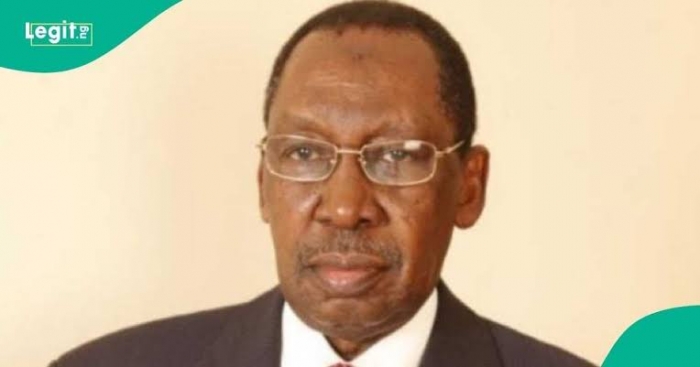Mohammed Uwais, a former Chief Justice of Nigeria (CJN), has passed away at the age of 88. He died in the early hours of Friday.
Born in Zaria, Kaduna State, Uwais had a distinguished judicial career that spanned several decades. He was appointed to the Supreme Court in 1979 by then military Head of State, General Olusegun Obasanjo, becoming a Justice of the apex court at the age of 43. In 1995, he was elevated to the position of Chief Justice of Nigeria, a role he held until his mandatory retirement at age 70 in 2006.
Uwais was Nigeria’s ninth CJN and holds the record as the longest-serving Justice of the Supreme Court. His 27-year tenure on the bench, including 11 years as CJN, was marked by service under five military governments and two civilian administrations.
After his retirement, Uwais continued to contribute to national development. In 2007, he was appointed by then-President Umaru Musa Yar’Adua to chair the Presidential Electoral Reform Committee. The committee’s report, submitted on December 11, 2008, proposed sweeping reforms to Nigeria’s electoral system. Among its key recommendations were the establishment of separate commissions for electoral offences, constituency delimitation, and political party regulation.
A hallmark proposal of the Uwais panel was to strip the President of the power to appoint the Chairman of the Independent National Electoral Commission (INEC). Instead, the panel suggested that the National Judicial Council (NJC) should shortlist qualified candidates, with the National Assembly confirming the final choice. The President’s role would be limited to administering the oath of office. The panel also advocated for financial autonomy for INEC.
However, on March 9, 2009, the Federal Executive Council under President Yar’Adua rejected the recommendation to change the INEC appointment process. Despite this, the Uwais report remains a landmark document in Nigeria’s democratic journey, with ongoing calls for its full implementation.
Uwais is remembered as a principled jurist and a reform-minded public servant whose legacy continues to shape Nigeria’s legal and electoral systems.
